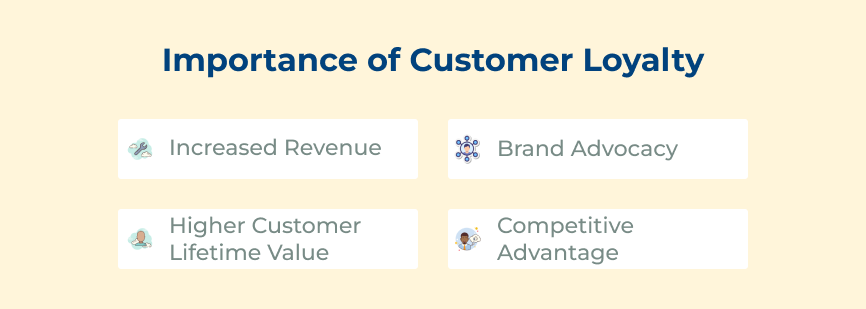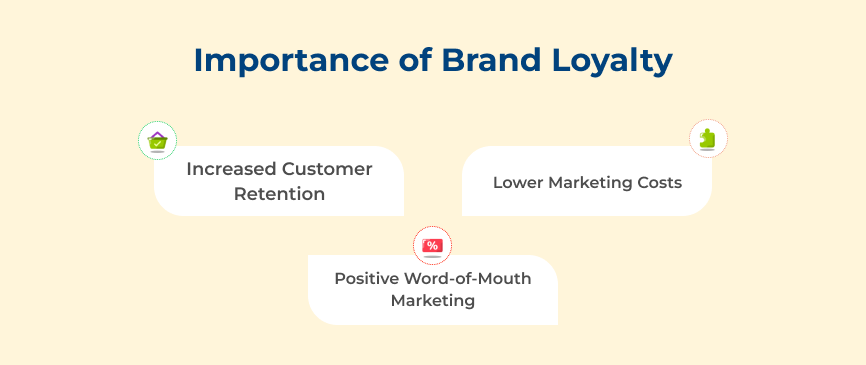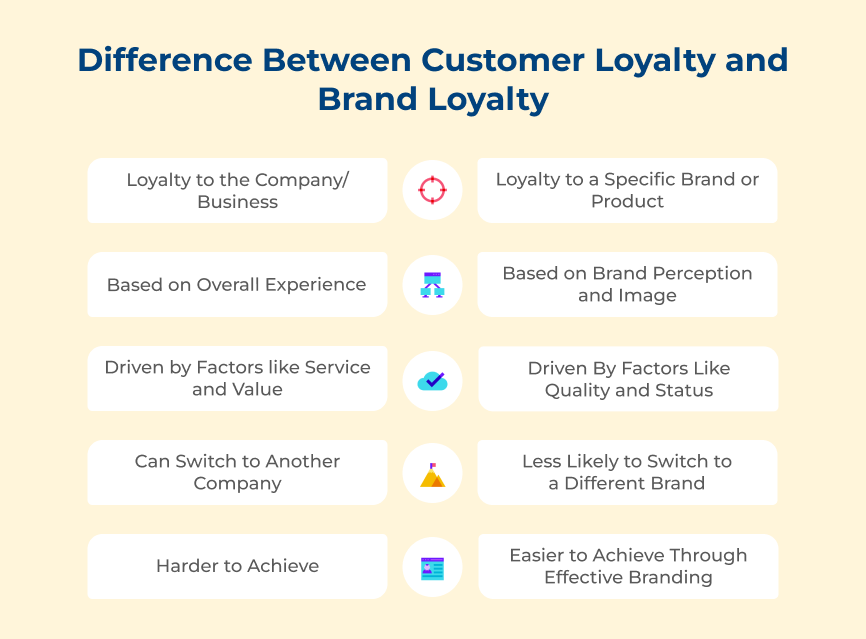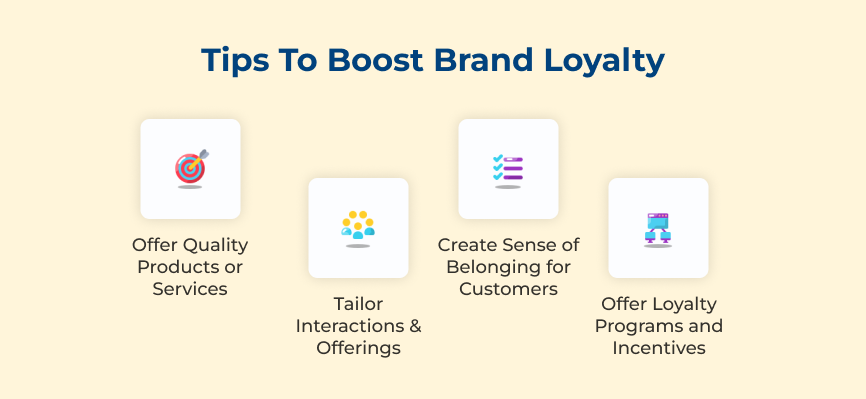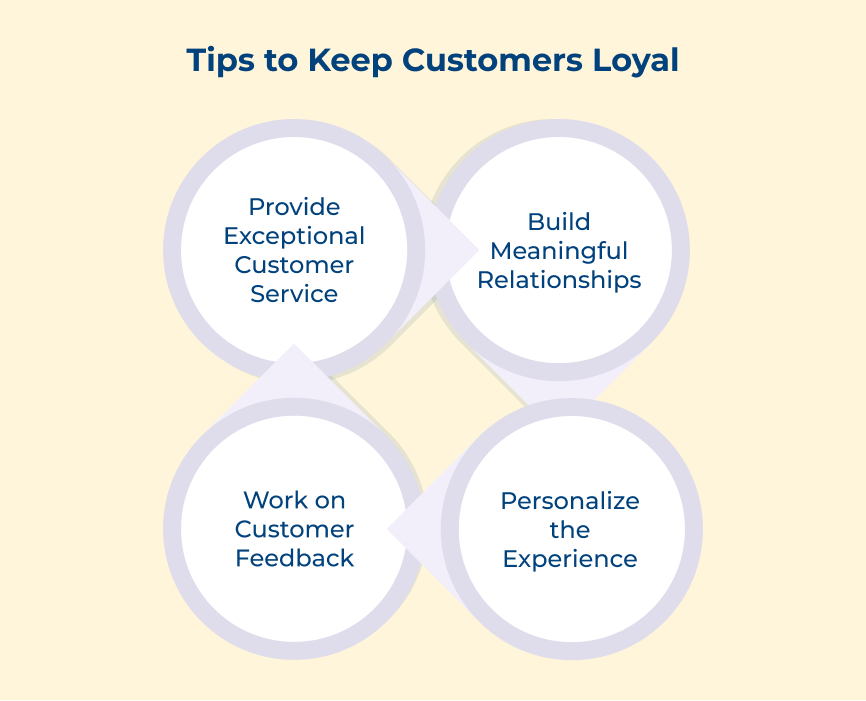1. Relationship Focus
Customer loyalty typically refers to the customer’s repeat purchase behavior or the frequency with which they buy from a particular company. It is transactional, focusing on the customer’s ongoing patronage of a business.
Brand loyalty goes beyond repeat purchases and encompasses the customer’s emotional attachment towards the brand. Brand-loyal customers may choose to buy from a particular brand even if there are cheaper alternatives available.
Key takeaways:
- Brand loyalty is better related to relationship focus. It allows companies to build deeper connections with consumers based on emotional ties rather than just transactional benefits.
- Customer loyalty is important for repeat business. Brand loyalty can drive greater customer advocacy and brand evangelism. Leading to stronger relationships and long-term success for the company.
2. Loyalty Drivers
Customer loyalty is based on the individual’s preference for a particular product or service, often stemming from positive experiences, convenience or price. The primary drivers of customer loyalty include customer service, product quality, convenience and price.
Brand loyalty is rooted in the customer’s emotional connection to a brand, its values and its overall reputation. Brand loyalty is driven by factors such as brand image, reputation, trust and emotional attachment. Customers with brand loyalty may choose a specific brand even when there are cheaper or more convenient alternatives available.
Key takeaways:
- Brand loyalty can be considered more beneficial for a business in the long run. Brand loyalty creates a strong emotional connection with the customer. Leading to repeat purchases, positive word-of-mouth marketing and increased customer lifetime value.
- Brand loyalty can withstand competitive pressures and market fluctuations better than customer loyalty. Making it a more sustainable form of loyalty in the ever-changing business landscape.
3. Switching Costs
Customer loyalty refers to a customer’s preference for a specific product or brand based on their positive experiences with it. Switching costs for customers with high levels of customer loyalty are typically low. They are more likely to stay with a brand even if a competitor offers a cheaper alternative.
Brand loyalty goes beyond just the product itself and encompasses a customer’s emotional connection or trust with a brand. Brand-loyal customers are more likely to incur higher switching costs. They have a strong allegiance to the brand and may be hesitant to switch to a competitor, even if it offers a better deal.
Key takeaways:
- Brand loyalty with its higher switching costs, may be more beneficial for businesses in the long run. It creates a deeper, more emotional connection with customers, increasing their lifetime value.
- Customer loyalty may not always result in high switching costs, making it easier for customers to be swayed by competitors. Focusing on brand loyalty can provide a more sustainable and powerful form of loyalty in the competitive market.
4. Longevity
Customer loyalty tends to be more short-term and transactional in nature. Customers may be loyal to a brand for a period of time, but their loyalty can be easily swayed by external factors such as price changes.
Brand loyalty is often more enduring and long-lasting. Brand-loyal customers are more likely to stick with a brand through ups and downs. They may even become advocates who recommend the brand to others.
Key takeaways:
- Brand loyalty is typically more sustainable than customer loyalty in terms of longevity. Customers may switch their preferences based on price, convenience or other factors.
Strong brand loyalists are likely to stick with a brand through various changes and challenges.
- Brand loyal customers often become brand advocates, promoting the brand to others and contributing to its long-term success.
5. Emotional Connection
Perhaps the most significant difference between customer loyalty vs brand loyalty is the presence of an emotional connection. Brand-loyal customers have a strong emotional bond with the brand, which goes beyond functional benefits or rational decision-making.
The emotional connection is built on trust, consistency and shared values. It plays a crucial role in shaping customer perceptions and behaviours. Customer loyalty is primarily driven by transactional benefits and may not involve the same level of emotional attachment.
Key takeaways:
- Brand loyalty is more sustainable in the long run as it creates a loyal customer base that is emotionally invested in the brand. These customers are less likely to be swayed by competitors and more likely to stay loyal during tough times.
- Customer loyalty may be easier to achieve in the short term through discounts or promotions. Without a strong emotional connection, these customers may easily switch to competing brands offering better deals.
Tips To Boost Brand Loyalty
Building brand loyalty is essential for the long-term success of any business. Loyal customers continue to purchase from the business and are more likely to recommend the brand to others. Here are some tips to boost brand loyalty:






